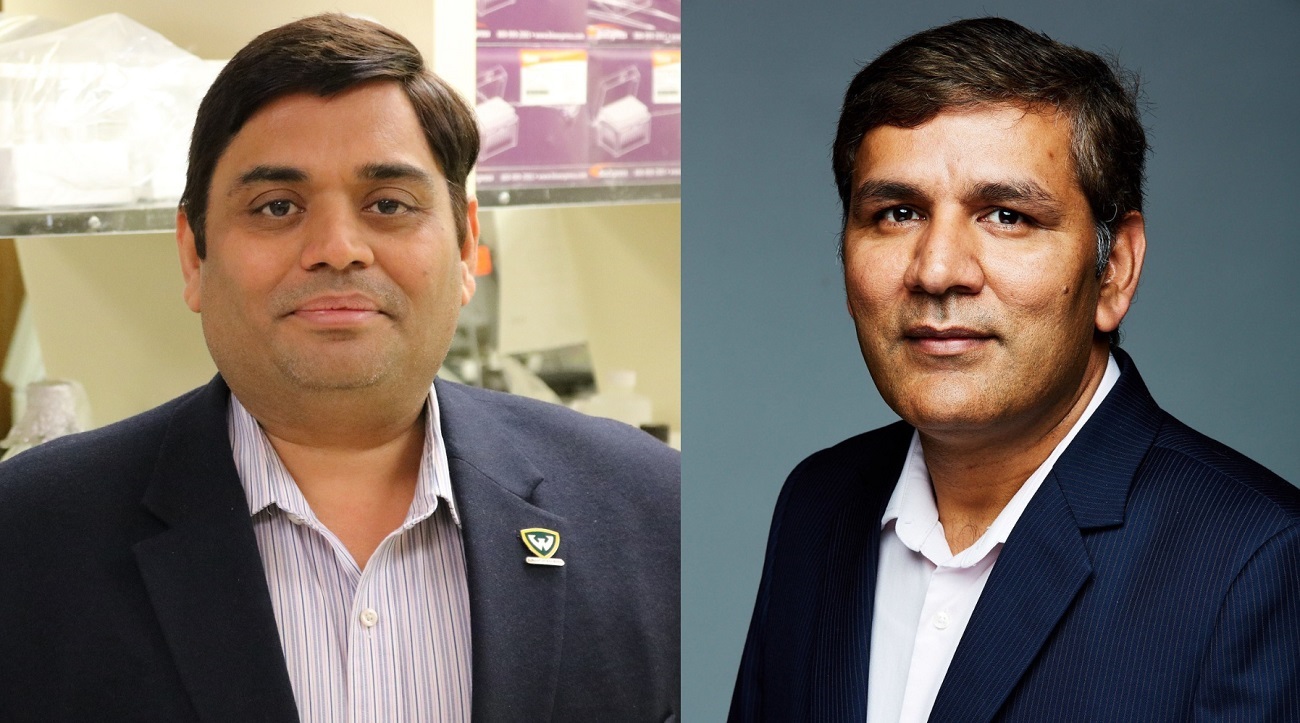Bacterial resistance to antibiotics continues to be a major challenge in health care, with infections caused by certain types of drug-resistant bacteria -- especially the methicillin-resistant staphylococcus aureus, or MRSA -- still a leading cause of mortality.

The latter accounts for 16 percent of all hospital-acquired infections, and is responsible for more deaths in the United States annually than HIV and AIDS. The pathogen’s high morbidity and mortality are attributed in part to its resistance to currently available antibiotics. That’s why scientists are turning to drugs which are used to treat other diseases and repurposing them in an effort to slow down the antibiotic resistance crisis and, in turn, save lives.
A comparative analysis of staphylococci and thousands of drugs’ genomic profiles has identified three FDA-approved drugs that have the ability to kill both sensitive and resistant staphylococci. Moreover, these drugs have been predicted to be even more effective, when used in combinations.
Ashok Kumar, Ph.D., associate professor of Ophthalmology, Visual and Anatomical Sciences and Kresge Eye Institute at Wayne State University in Detroit; and Manoj Bhasin, Ph.D., assistant professor of medicine at Harvard Medical School and co-director of Genomics, Proteomics, Bioinformatics and Systems Biology Center at Beth Israel Deaconess Medical Center (BIDMC) in Boston will lead a multi-principal investigator study using a new $456,000 grant from the National Institute of Allergy and Infectious Diseases of the National Institutes of Health.
“The long-standing interest of our laboratory is to study infectious diseases (caused by bacteria, viruses and Fungi) that affect vision and eye health. Over the years, we have identified several pathways that can be targeted therapeutically to prevent and treat eye infections. This study is another extension of our research program,” Dr. Kumar said.
Another area of Dr. Kumar’s research is to understand mechanisms of antibiotic resistance among bacteria, prevalent in hospitals and the environment and the development of alternative antimicrobial therapeutics to reduce antibiotic resistance. His laboratory is the first to demonstrate the therapeutic efficacy of bacteriophage-derived protein call endolysin in ocular infections. Bacteriophage are viruses that kill bacteria. WSU has filed patent based on Dr. Kumar's research in this area.
The discovery of new antimicrobials has declined since the 1980s, in part because pharmaceutical companies cannot recoup the cost of a new drug investment as antibiotics are prescribed to be used for a shorter duration than drugs for long-term illnesses and diseases such as cancer and diabetes, Dr. Kumar added, citing reports from Bloomberg News and National Geographic. “Moreover, as soon as antibiotics are used, resistance starts to develop and these newer antibiotics are no longer of much use,” Dr. Kumar said.
“In this era of genome and bigdata, where our understanding of molecular profile of drug resistance infections is steadily increasing, the pharmaceutical industry is still struggling to successfully develop new antibiotics as traditional drug discovery both time-consuming and expensive,” Dr. Bhasin said. “Therefore data-driven innovative approaches of ‘drug repurposing’ -- the practice of looking for new clinical uses of existing drugs -- is emerging as an alternative strategy for drug development. However, one of the biggest challenges in drug repurposing is the large-scale screening of compound libraries to identify therapeutic leads.”
To overcome these challenges, the researchers from Wayne and BIDMC used a bioinformatics approach that compare the gene expression profile of disease/infection and drugs/chemical profile to predict drugs that will significantly counter-regulate genes modulated by infection. The approach took advantage of a unique resource for drug repurposing created under the National Institutes of Health Common Fund’s Library of Integrated Network-based Cellular Signatures program that contains genomic profiles of more than 19,000 small bioactive molecules and FDA-approved drugs.
The unbiased analysis to connect drugs with transcriptome profile of ocular infection data published in their prior study ( https://www.ncbi.nlm.nih.gov/pubmed/26865111) resulted in identifying three drugs and two drug combinations that have the potential to reverse the disease outcome of ocular infections in an animal model, a discovery developed in Dr. Kumar’s Detroit lab.
“The identified drugs have been approved for other uses, and tested in humans, so detailed information is available on their pharmacology, formulation and potential toxicity. Therefore, one of the biggest advantages of discovering new uses for approved drugs is the increased possibility of bench-to-bedside transition,” Bhasin said.
Repurposing existing approved drugs also permits drug companies to bypass much of the preclinical work and early stage clinical trials required for new compounds, cutting down the costs normally associated with bringing a new drug to the marketplace.
Dr. Kumar’s lab will be responsible for testing their toxicity and in vivo efficacy in animal models, while Dr. Bhasin’s lab will be responsible for performing genomics and systems biology studies to investigate the molecular mechanisms underlying the therapeutic effects of these predicted drugs and comparing their modes of action with antibiotics.
The scientists have collaborated since 2014, producing two joint papers. “This multi-PI grant further strengthens this partnership and help us to move the field forward,” said Dr. Kumar, who is the contact PI for National Institutes of Health Award No. AI140033